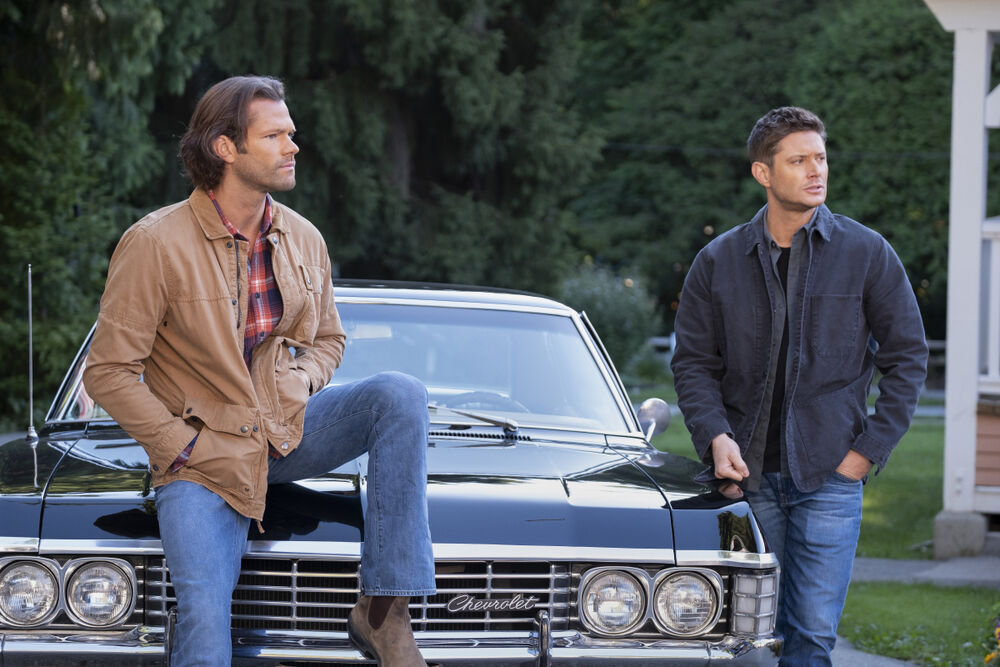
Supernatural: Saving People, Hunting Things, and Killing Women
December 31, 2020
In November of 2020, the world witnessed an amazing and historic development out of the USA: Supernatural finally aired its last episode.
Its passing is mourned by legions of fans, but celebrated by us here at the #DFGRR, because it means we can finally analyze it.
The Times
Supernatural, created by Eric Kripke, premiered on September 13, 2005, and aired its planned series finale on May 10, 2010. Then, to everyone's surprise, the CW network renewed it and kept it running another 10 years, before announcing the finale would air in May 2020. Then, the 'rona hit in March and the show went off the air for 7 months, only to rise again and push through its really-truly-this-time-we-mean-it finale, which aired November 19, 2020.
This 182-month run puts Supernatural on par with Bonanza for length of time spent on the air. Even though the finale is a current event, therefore, I'd like to ask you to cast your mind back to 2005 for a little historical context. In September 2005:
- The sixth and final* Star Wars movie had just left theaters. (*We're now up to 11.)
- Michael D. Brown resigned from FEMA in contrition over his botched response to Hurricane Katrina. At the time, the 2005 hurricane season was noted as an especially bad one, with 28 named storms. (The 2020 season had 30.)
- George W. Bush was serving as the forty-third president. (#46, Joe Biden, is now making transition plans.)
- Confirmation hearings were underway for John G. Roberts's appointment to the Supreme Court. (Roberts is now the 3rd-longest-serving justice on the court.)
- Connecticut became the 2nd state in the union to allow same-sex civil unions. (Same-sex marriage was legalized nationally in 2015, during Supernatural's 10th season.)
- Facebook had just been invented. (It now decides elections.)
In short, Supernatural has swept through some quite significant history during its run.
Did that affect the show in any way?
Not directly. Unlike Bonanza or Star Trek, this is not a show that does Very Special Episodes about specific real-world events. It makes occasional references to politics, such as when a young woman describes a drug dealer as "a small businessman trying to make it in Trump's America." But these shout-outs never really amount to much, and a few of them create continuity snarls. That Trump reference, for instance, took place in an episode set roughly 14 months after an episode in which the president of the United States was a Republican named Jefferson Rooney.
(Rooney also got possessed by Lucifer himself. This is that kind of show.)
In short, this is not a show that's interested in its specific relationship to any real-world events.
It is a show that does, however, raise questions about issues like the nature of good and evil, free will, original sin, nature vs. nurture, addiction recovery, forgiveness, grace, love, loyalty, and family. The characters loooooove to talk (...and talk...and talk...) about that stuff. Although Supernatural is not an overtly political show, therefore, it does have fans among real-world politicians, most notably Georgia's Stacey Abrams.
Hi @staceyabrams. I'm the creator of #Supernatural & we're honored you dig the show. YOU SAVED THE WORLD FOR REAL. If you want ANYTHING #SPN, reach out, its the least we could do. Thanks for all you do, the #SPNFamily is proud to have you! @JensenAckles @jarpad @mishacollins pic.twitter.com/TpbR5GR1pR
— Eric Kripke (@therealKripke) November 6, 2020
It is therefore fair to say that Supernatural does have an influence on the real world, in the form of providing inspiration to its fans.
The Setup
Characters

Supernatural is the story of two brothers, Sam (Jared Padalecki) and Dean (Jensen Ackles) Winchester. They drive around the country in a 1967 Chevy Impala, saving people and hunting things - things such as ghosts, monsters, cursed objects, pagan gods, the Abrahamic God, God's little sister, demons, kings of hell, knights of hell, princes of hell, rogue angels, not-so-rogue angels, archangels, Leviathan, and the literal Devil.
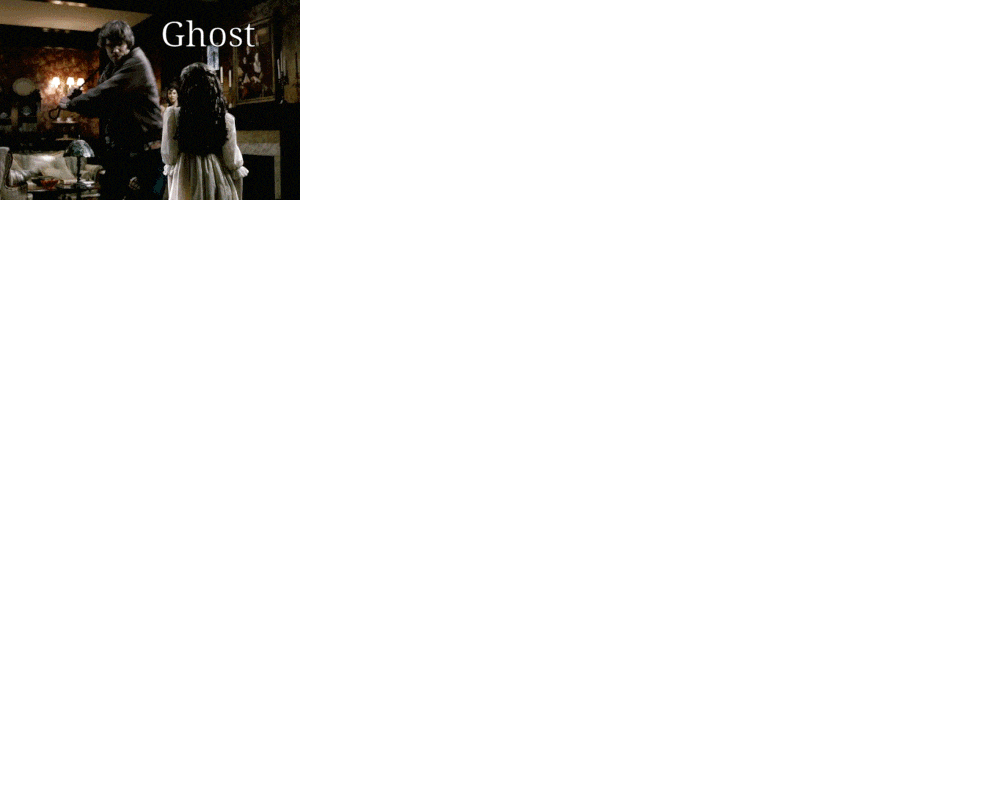
I am not making that list up.
Requisite Tragic Backstory
The Winchesters' origin story is presented in the pilot as follows: in 1983, their mother, Mary, caught a demon in Sam's nursery. The demon killed her and burned the house down.
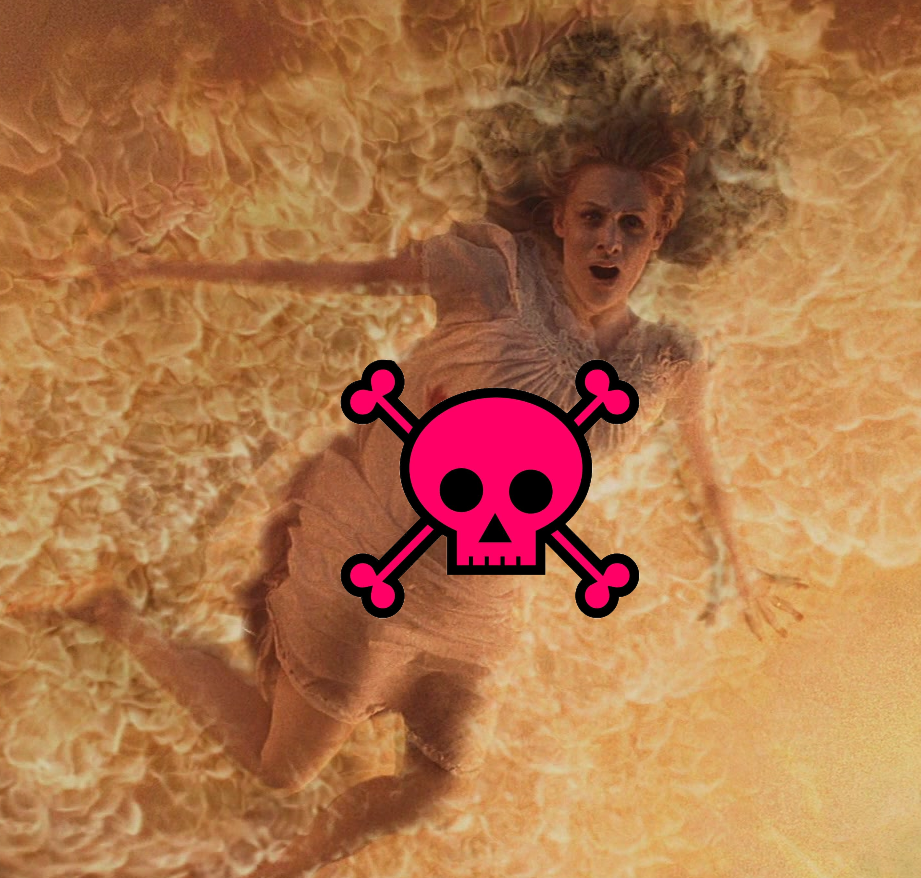
This prompted their father, John, to become a monster hunter who raised his kids to be child soldiers. Unsurprisingly, Sam rebelled and left the family to go to college, where he was preparing to study law. When John went missing in 2005, Dean asked Sam for help tracking him down. Sam reluctantly spent a weekend helping his brother, although it meant leaving his girlfriend, Jessica, home alone. But then, when he returned home at the end of the pilot episode, he discovered the demon had come back and murdered Jessica.

Heartbroken and out for revenge, Sam went back to hunting.
For those of you keeping score at home, that's two dead women in a single 42-minute pilot episode, and one Winchester family that consists entirely of men. We're off to a great start.
Over the course of 15 seasons, this story is expanded to become even more tragic. It turns out John and Mary were the subjects of a centuries-long angelic scheme to create a family where the children would be suitable vessels for the Archangels Michael and Lucifer. It turns out that Mary saved John's life back in 1973 by agreeing to let the demon into her future son's nursery. It turns out that this was all pre-planned by a sci-fi author named Chuck, who (spoiler alert) was God in disguise.
As one might expect after such a beginning, the brothers go through quite a bit of trauma during their lives. Sam develops an addiction to demon blood because it was fed to him as a baby. Dean dies and is resurrected by a demon in exchange for John's soul. Dean, in his turn, sells his soul to save Sam. Both brothers die and go to Hell, come back, die and go to Heaven, come back, and go on to die again. Sam gets manipulated into releasing Lucifer from his divinely-crafted cage (on two separate occasions, no less!) Apocalypses are launched and averted on an annual basis. The main characters have weekly moments of melodrama where one or both of them cries over a moral dilemma. Hilarity ensues.
No, seriously - this show is funny.
Along the road, an awful lot of women die, including both one-off guests and recurring characters, love interests and innocent bystanders, evil monsters and sweet allies.
Setting
Like any other long-runner, this show reinvented itself periodically to keep things interesting. The first 2 seasons were just Sam and Dean fighting a fresh monster in a new town every week, with the only consistency being their awesome car, their fraternal dynamic, and their inability to locate their father.
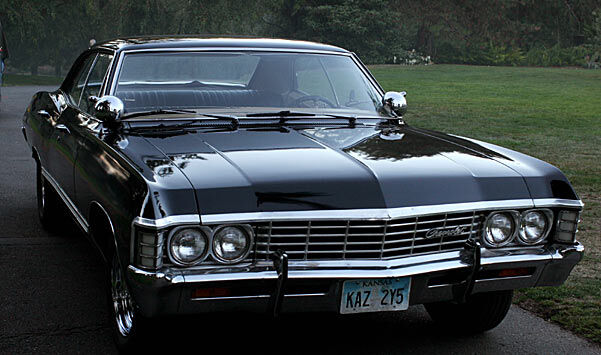
From seasons 3-7, the Winchesters were slowly introduced to more recurring locations, such as the Sioux Falls, SD home of their friend Bobby Singer (Jim Beaver). The stakes of their hunting also got higher, with standalone urban legends and ghost stories giving way to season-long arcs concerning angels and demons. One angel, Castiel (Misha Collins) was promoted to series regular and became an honorary third brother. (They also have a human half-brother, but he was never mentioned again after the season 5 finale in which he *checks notes* got trapped in Hell.)
Then in season 8, the Winchesters finally gained a home base in the form of a secret underground bunker in Lebanon, Kansas.

More people moved into the bunker with them as time went on, including their mother (who was resurrected by God's kid sister in the season 11 finale), Lucifer's half-human son Jack (who was born in the season 12 finale), and the population of an alternate-universe, post-apocalyptic Dayton, Ohio (which they evacuated into their universe at the end of Season 13.) By the end, they were basically running a group home.
Nevertheless, the show maintained a few consistent elements throughout. The brothers Winchester continued to love each other so fiercely and eternally that they'd move heaven, earth, hell, and purgatory to stay together (which is either sweet, incestuous, or dangerously codependent, depending on your perspective.) The world continued to be full of things that needed hunting. And the brothers continued to drive a '67 Chevy Impala around the country while pausing frequently to cry about morality.
Which brings me to...
Connections to our Other Competitors
I certainly hope Eric Kripke has given due thanks to both David Dortort of Bonanza and Gene Roddenberry of Star Trek for making Supernatural possible. You see, long before Ackles and Padalecki could set out to save people and hunt things, there were several prerequisites for our culture.
First of all, audiences needed to get comfy with the idea of watching men cry as entertainment. This requirement was boosted by Bonanza's Michael Landon, aka Mr. "I want people to laugh and cry, not just sit and stare at the TV." Landon's famous ability to turn on the tears helped define network TV's understanding of masculinity for over 30 years.
Second, Chevrolet had to produce '67 Impalas. Which they did, with the help of Bonanza's characters doing in-character commercials to drum up business. The Impala in Supernatural is supposed to have been produced in April of 1967, which is around the same time that Pa Cartwright was starring in Chevy training videos.
Third, the genre of speculative fiction needed to become mainstream. The role of Star Trek' fans, fanzines, and fan conventions in that development is well-known.
Finally, slash fiction had to be invented. And the Star Trek fandom took good care of that, as well, with Spock/Kirk fanfics gracing fanzines from at least 1968 onwards.
So it has come to pass that in the 21st century, American audiences can comfortably enjoy a long-running fantasy show which constantly makes its male stars cry on camera, and which has 140,000 fics tagged with M/M pairings on ArchiveofOurOwn.org alone. (>28,000 of which, I might note, involve Sam & Dean being in an incestuous relationship. This is that kind of fandom.)
I know that the Supernatural creative team is, at minimum, aware of the debt they owe to Bonanza and Star Trek. How can I tell? Plaintiff's exhibit A: the opening credits of the Supernatural episode "Frontierland" copy the Bonanza credits.
That same episode also features Dean describing time travel by saying, "We'll Star Trek 4 this bitch."
With that bit of history out of the way, I'm sure you're all dying to hear about this blog's favorite question:
Are there any Women?
Behind the Scenes?
Yes! Compared to our previous competitors, Supernatural had a much more gender-inclusive production staff. That's not to say that cis men are in any way under-represented, mind you, just that they weren't the only humans in the room where it all happened. Specifically:
The Writers
According to IMDb, 13 out of a total 53 credited screenwriters over the course of SPN's run were women.
The Directors
There are at least 3 women who have directed episodes of Supernatural: Rachel Talalay, Nina Lopez-Corrado, and Amanda Tapping. Put together, they accounted for...well let's see...carry the tens...
Eleven episodes, out of 324.
Whoa-kay. That total is better than Bonanza's or James Bond's, of course, but I still wouldn't call it progressive...
The Showrunners
Phew, all right, now we're talking: Supernatural had 5 different showrunners at various points in its run, and 1 of them was Sera Gamble.
Sadly, she only ran the show for seasons 6 and 7, which aren't the highest-ranked by fans. Still, it's something. And we really need a something, because unfortunately we are about to discuss...
Are there any Women On-screen?
My sister once described this show as something that "started 39 years after Star Trek, has been on 5 times longer, and manages to have 100% fewer female leads." And she's not wrong: Supernatural has always had an all-male main cast.
The nature of the show generates plenty of opportunities for recurring female characters, though. For example, Mary Winchester dies in the opening scene but continues to make semi-regular appearances before her resurrection in Season 12. Jessica, who dies in the pilot episode, pops up in several alternate universes. There's also the mother-daughter hunting team of Ellen and Jo, who heroically sacrifice themselves to blow up hellhounds in season 5. There's a fourth-season psychic named Pamela Barnes who gets killed by demons while helping Dean and Sam with astral projection. There are the demons Ruby and Meg, both of whom get killed by the Winchesters (although in Meg's case, she got better and then got killed by somebody else). There's Bella, a thief with a soul-selling arc that gets tragically truncated by the 2008 writers' strike before she dies. There's Anna, a fallen angel who dies in the process of trying to prevent Sam's birth. There's Charlie, a lesbian hacker who leaves the safety of the Winchester bunker because another female guest is annoying her, and gets murdered by the Frankenstein family. And then there's...wait a minute...I think I'm sensing a trend here...
99% of all the recurring female characters on this show are dead, dying, undead, or resurrected.
Before you ask, no, there isn't a stated in-universe reason for why the Supernatural world is so dangerous for women. It is just an assumed part of the premise, like faster-than-light travel is for Star Trek or nonexistence of STDs is for James Bond. It is, in other words, an authorial shortcut: lots of women die because that is how our show works.
Here's Lucille Bluth rolling her eyes, to save you the trouble. (via GIPHY)
This cavalier attitude is hardly unusual for shows that make it to the #DFGRR. Supernatural does stand out, however, because of the high number of...
Women in the fandom
Supernatural has a large and devoted following, of the type that runs fan wikis, organizes fan conventions, and creates extremely intricate fanfiction universes. In fact, a fanfiction subgenre popularized by Supernatural fans became the subject of a high-profile copyright infringement lawsuit that prompted this amazing NY Times Headline:
Yes, really.
If you spend any amount of time in this huge, goofy, lovable fandom, you will quickly notice that its most passionate voices are female. The crowds at conventions look like ladies' night at a club. The fanfic boards are full of fics written by and for a female audience, including thousands of gender-swapped takes on the main characters (alongside the aforementioned slash fics and wolf-kink erotica, which also tend to have female authors.)
So it may not be surprising that, when Supernatural stumbled in its portrayal of female characters[' deaths], their legions of female fans were willing to call them out. Most famously, at the 2015 Comic-Con panel, a fan named Fabiola got up during the Q&A and demanded to know, "Considering that women have too often been used to further the plot of the male characters, why was the decision made to kill Charlie and dump her in a bathtub?"
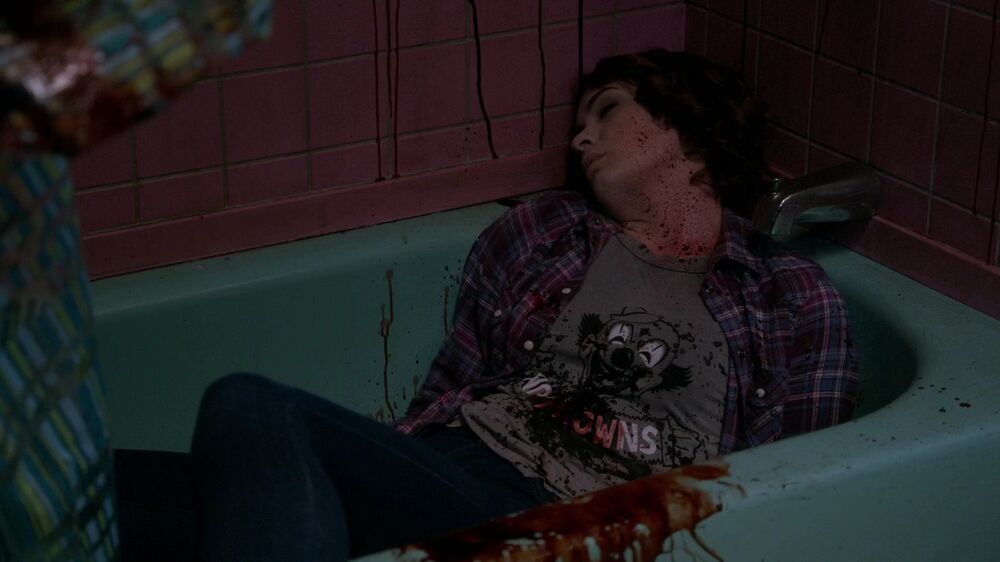
What was the response?
The audience clapped and cheered, to begin with. Then the producers and stars attempted to answer this extremely fair question, but, well, they weren't that good at it. You can watch at the link above, or read a description here. Either way, I believe you'll agree that the answers amounted to, basically, a handwave.
Most egregiously, showrunner Jeremy Carver literally said, "People die on the show." Which was true, but dodged Fabiola's point that the people who died on the show were disproportionately women. And those deaths were disproportionately used to further the plot of the male characters.
It took some chutzpah to stand in a room full of women angry about this and argue, as Jensen Ackles did, that there was nothing wrong with the way that arc was handled and therefore "we should be thankful for the time that we got to spend with [Charlie]."
Should we be thankful?
In a word: no.
No, I'm not grateful that Supernatural kept introducing interesting, funny, relatable, kickass women, and then killing them off for drama. Introducing more and more female characters [that you can kill off] is not a sufficient substitute for developing the characters you already have.
Nor is it cute to suggest that you're doing so just because "people die on the show." Because if you're the screenwriter, you're in charge of which people those are!
Nor should we quietly accept that a 76%-male writers' room is somehow incapable of cherishing female characters the way it cherishes the males. Every screenwriter makes a living by observing human nature. Every man has met a woman, at some point in his life. Men screenwriters should be able to write women characters. And if one of them can't, he can hire a woman writer for advice.
Furthermore, as we've discussed previously, casual misogyny in a TV show is especially problematic when the target audience is female. Supernatural writers knew that their female fans were showing up for them - online, at conventions, in front of their TV sets. So why weren't they willing to have female characters show up for those fans?
Let's chew on that food for thought next time, in our full analysis of Sam Winchester's DFGRR stats.
